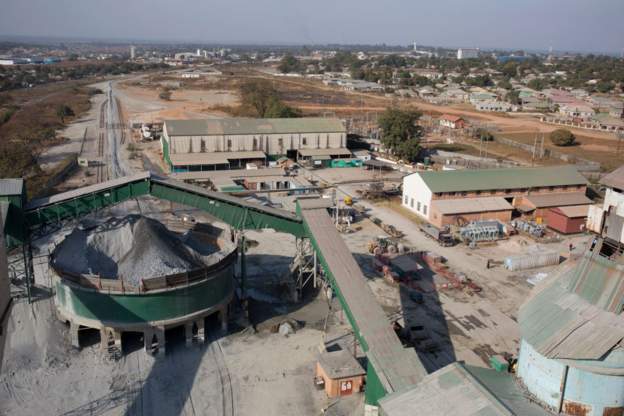Zambia’s President Edgar Lungu has ratcheted up his pressure on foreign mining companies to comply with a recently introduced sales tax or stop their operations.
He said he was unhappy that some mining companies in the northern Copperbelt region were downsizing operations and firing workers, partly because of the new tax.
He singled out Mopani, the local unit of mining giant Glencore and Konkola Copper Mines KCM, owned by Vedanta Resources Limited.
The government has a stake in both local companies but Mr Lungu said that the government had started the process of disengaging its investment in KCM, reports the state-owned Zambia Daily Mail.
Mr Lungu said KCM and others had told him “lies” that they would increase their investments.
“Like I said, it is a process. It starts with the desire, the will and the heart. There is no question about our resolve to divorce KCM,” Mr Lungu said as he addressed journalists and ruling party supporters after winding up his tour of the Copperbelt region over the weekend.
“And we have filed that notification. So as I go back to Lusaka, we will have a cabinet meeting tomorrow [today]. I will brief my colleagues about my trip and ensure that the other processes start.”
KCM said in a statement that it was aware of the president’s comments but had not received an official communication about his plans.
It said that it had sought to an “urgent meeting with the president or the minister of mines”.
The company said that it had invested $3bn ($2bn) in Zambia and employed 13,000 people and that it also operates other corporate social programmes like hospitals and schools.
It added that it was yet to make a profit on its investment since its acquisition in 2004.
“The company is yet to receive a positive return on this investment while, on the other hand, taxes, duties, fuel and other power costs have risen exponentially,” the statement said.
Glencore has not yet commented.
Mr Lungu asked miners at KCM to protect assets from being stripped.
Vendata, the largest mining company in India,is being sued by people living in the Copperbelt for pollution in what has become a high-profile case at the High Court in the UK.
The company denies any wrongdoing.





